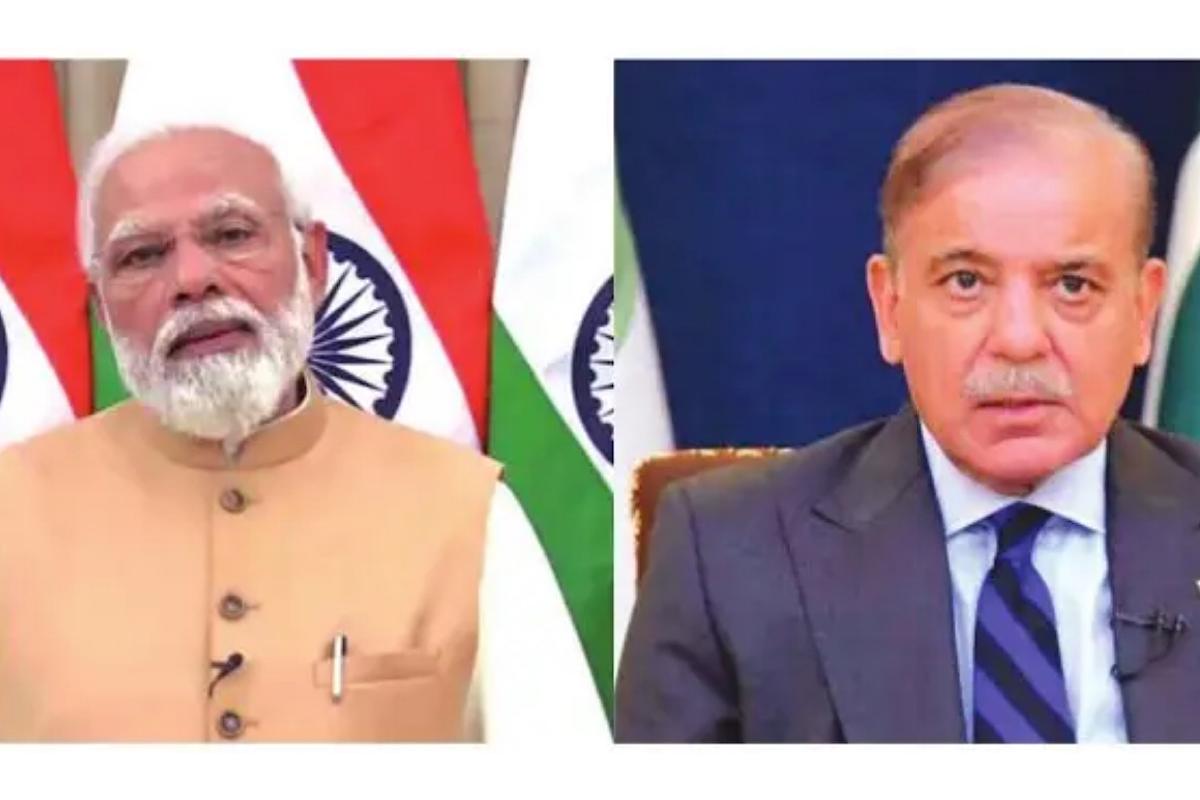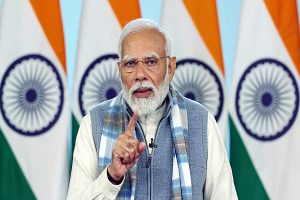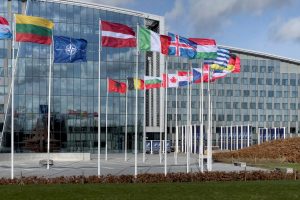Prime Minister Narendra Modi congratulated Shehbaz Sharif on being appointed PM with a formal message mentioning, “Congratulations to @CMShehbaz on being sworn in as the Prime Minister of Pakistan.” A similar tepid response came from Pakistan. Sending congratulations is a diplomatic nicety conveying recognition of the new government. There was no mention of enhancing ties or even working together for upliftment of the public, which displayed the indifference of the Indian government.
The tweet was sent after Shehbaz was sworn in as the PM. This is in sharp contrast to the message sent by PM Modi in April 2022 when Shehbaz was appointed PM for the first time. Apart from customary congratulations, PM Modi added, “India desires peace and stability in a region free of terror, so that we can focus on our development challenges and ensure the well-being and prosperity of our people.” He had even written a congratulatory letter mentioning that India desired “constructive ties” with Pakistan. A similar message had been sent when Imran Khan had become the PM. In both cases, the Pakistani PMs had replied but failed to follow up by curtailing support to terrorism, and letting the opportunity for dialogue pass. Post August 2019, Pakistan added a new condition which was reinstating Article 370, a demand India would never meet.
Hence, the relationship froze. What has really changed in the recent past for PM Modi to send a curt and formal message to Shehbaz, fulfilling diplomatic niceties while displaying no intent to engage with Islamabad? Firstly, India has outgrown Pakistan. The Indian economy is ten times the size of Pakistan with the difference increasing each year. India is involved in every major global discussion, while Pakistan remains a non-entity. Pakistan never comes on the table when a global visitor comes to Delhi, while Kashmir is mentioned prominently whenever a dignitary visits Pakistan. For India, Pakistan is a has-been state while Islamabad continues to possess a Kashmir and India fixation. Secondly, India knows that Pakistan neither has the resources nor weaponry to pose any credible threat. All it can do is continue claiming Kashmir as disputed which must be resolved through UNSC resolutions, a cry which is hollow and empty.
Its comments in global bodies linking Kashmir to every issue is a display of its frustration. It is no longer a frontline state, begging to survive and struggling to maintain ties with the US while being a Chinese lackey, whereas without India no global crisis can be discussed. Thirdly, the coalition that Shehbaz heads has no power to initiate any dialogue with anybody, let alone India. It has been cobbled up by the deep state to meet their requirements and would survive for as long as Rawalpindi’s club of Generals desire it to. Bilawal Bhutto and Imran are always waiting on the sidelines ready to jump on the PM’s throne. One error and Shehbaz would be on a flight to London. Mentioning dialogue to anyone in Islamabad is valueless.
Backchannel discussions with the Rawalpindi cliché of generals may possibly be ongoing. Fourthly, apart from China, Pakistan has no supporters. The US possesses the ability to squeeze the IMF tap, if India applies requisite pressure. Saudi Arabia and the UAE are more interested in investing in India than supporting Pakistan financially. Any Indo-Pak conflict can impact West Asian investments, which would be unacceptable. Hence, they would keep a tight leash on Pakistan. It will be permitted to belabour Kashmir, nothing beyond that. Fifthly, Pakistan’s internal security scenario as also its relations with Kabul and Tehran are worrisome. Groups such as the Baloch and the TTP (Tehreek-e-Taliban Pakistan) would exploit any weakness in Pakistan.
Hence, tensions with India will open doors for them to grab what they believe should not be a part of Pakistan. A financially weak Pakistan cannot handle two fronts simultaneously. Sixthly, Kashmiris are no longer enamoured by Pakistan, its propaganda or joining it on religious grounds. The vast gap in development on the two sides of the LOC is clearly visible. Protests for breaking away or being granted freedom are no longer visible in Kashmir but in POK and Gilgit Baltistan. Hartals, stone throwing and violence is nonexistent in Kashmir while a noncooperation movement is gaining ground across the LOC. Hence, Pakistan’s promise for supporting the Kashmiri cause is aimed at disguising the reality of its lost claim. Finally, India has moved into election mode. Even contemplating engaging in dialogue at this stage is fraught with risk.
Even if Pakistan were to offer reconciliation, the government would hesitate as it has had bad experiences earlier. In reality, nothing changes in Pakistan. Shehbaz raised Kashmir in his first comments on being appointed. He mentioned, ‘Let’s all come together…and the National Assembly should pass a resolution for the freedom of Kashmiris and Palestinians.’ Even in April 2022, he had done the same. He had then stated, “We want good ties with India but durable peace is not possible until the Kashmir dispute is resolved. We will raise voice for Kashmiris brothers and sisters at every forum. We will give them diplomatic and moral support.” What else can be expected from India-obsessed Pakistani politicians? Many in Pakistan are aware of the turnaround in the Indian economy and its current global standing.
This is evident when Pakistani representatives in every global body have only India to discuss but never does an Indian representative mention Pakistan, except in response. Half of the Pakistan PM’s UN General Assembly speech is devoted to Kashmir and India, while Pakistan does not figure even when the External Affairs Minister speaks there. The popularity of PM Modi as a global leader is visible in Pakistan. Many Pakistanis hope for a PM like him. In the current scenario India is unlikely to take any initiative. It has to flow from Pakistan and without any pre-conditions.
The dialogue offer should also not insist on Kashmir or reinstating article 370. Further, as a preliminary goodwill gesture, Pakistan must announce reinstatement of High Commissioners, as also commencement of trade. Islamabad should understand that India does not need Pakistan. But they need New Delhi’s support if they have to get out of the economic mess they are in. The writer is a retired Major-General of the Indian Army.












